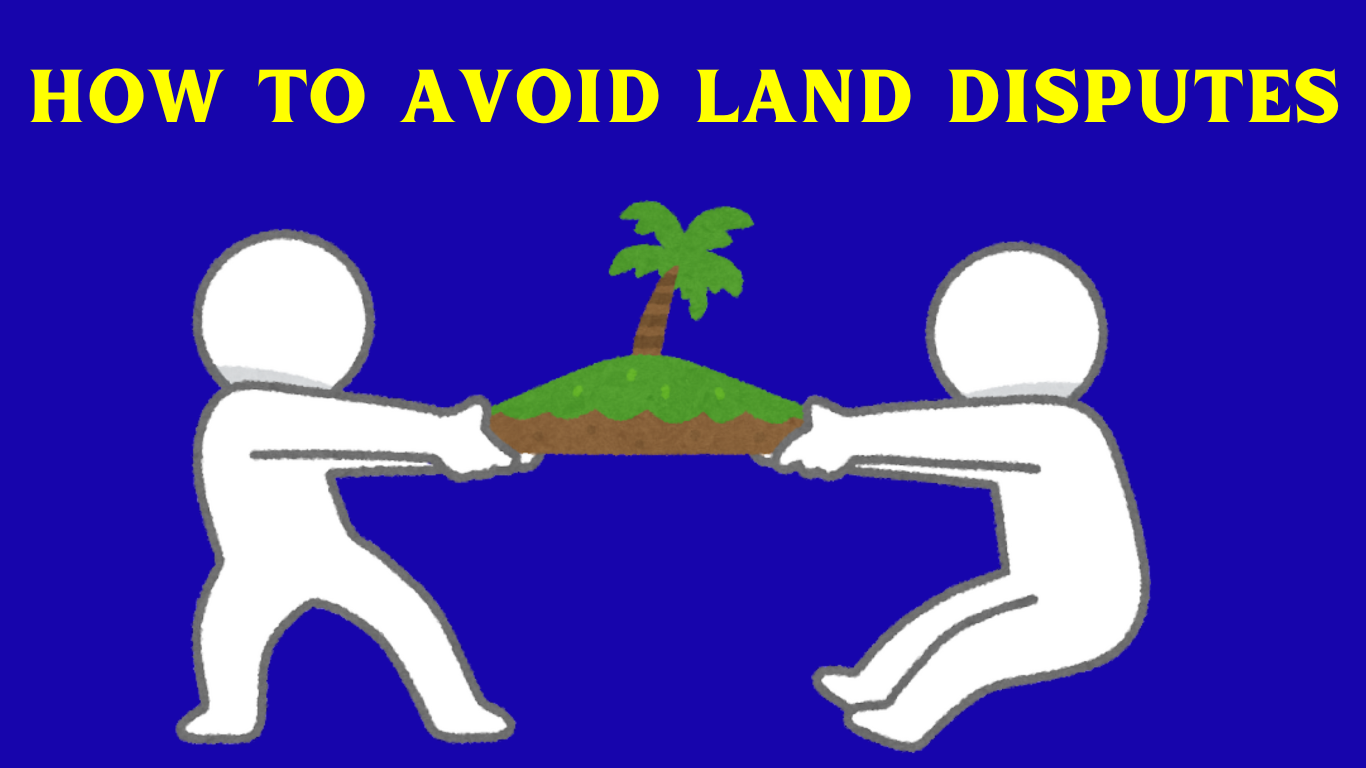Purchasing land in Nigeria is a significant investment, but the process is a lot of potential pitfalls, especially concerning land ownership disputes. Many buyers have found themselves involved in legal battles, losing both their money and the land they thought they owned. To avoid such costly mistakes, it’s crucial to ensure that the land you’re buying is really yours.
This guide will show you how to avoid land disputes by conducting thorough due diligence before finalizing your land purchase.
1. Understanding the Importance of Verifying Land Ownership
Before you commit to purchasing land, the first step is to verify that the seller has the legal right to sell the property. In Nigeria, land ownership can be complex, with various types of ownership systems, including family ownership, communal land, and government allocations. Here’s why verifying land ownership is crucial:
- Avoiding Fraud: Verifying ownership helps you avoid fraud, where corrupt sellers may try to sell land that doesn’t belong to them.
- Preventing Future Disputes: Proper verification ensures you don’t buy land already claimed by someone else, preventing disputes and potential investment loss.
- Ensuring Legal Compliance: Owning land without the proper legal documentation can lead to difficulties in registering the land, obtaining building permits, or selling the land in the future.
2. Steps to Verify Land Ownership and Avoid Disputes
To protect your investment, follow these critical steps to verify land ownership and avoid disputes:
- Conduct a Land Search at the Land Registry: The first and most important step is to conduct a search at the state Land Registry where the land is located. This search will reveal if the land is genuinely registered, who the registered owner is, and whether there are any encumbrances, such as mortgages or legal disputes, on the land.
- Request the Original Land Documents: Ask the seller to provide the original land documents, including the Certificate of Occupancy (C of O), Deed of Assignment, or Survey Plan. These documents should be carefully examined to ensure they are authentic and correspond with the details obtained from the Land Registry.
- Verify the Seller’s Identity: Ensure that the person selling the land is indeed the rightful owner. If the land is owned by a family or community, verify that all relevant members or representatives have agreed to the sale.
- Check for Legal Encumbrances: Investigate if there are any legal encumbrances on the land, such as ongoing court cases, government acquisitions, or claims by third parties. These encumbrances can prevent you from gaining full ownership of the land.
- Survey and Mark the Boundaries: Hire a licensed surveyor to survey the land and mark the boundaries. This step ensures that the land you’re buying is accurately demarcated and helps prevent boundary disputes with neighboring landowners.
Lets help you become a landlord, Call us or Click to send a whatsapp message
3. Common Land Disputes and How to Avoid Them
Despite taking precautions, land disputes can still arise. Here are some common types of land disputes and tips on how to avoid them:
- Boundary Disputes: These disputes occur when neighboring landowners disagree on the exact location of their property lines. Hence, ensure a licensed professional surveys the land and clearly marks the boundaries, with all parties agreeing, **to prevent** boundary conflicts.
- Ownership Disputes: These arise when multiple parties claim ownership of the same piece of land. Verifying the land’s ownership through the Land Registry and ensuring all relevant parties are in agreement can prevent ownership disputes.
- Disputes Over Inherited Land: Inherited land through family or communal ties can be contentious, with multiple heirs or community members claiming rights. Ensure all heirs or representatives agree, and legal professionals document and witness the sale.
- Government Acquisition Disputes: The government may later claim land sold for public use; consequently, it is crucial to be aware of this possibility when purchasing property. To avoid this, check with the Land Registry to ensure that the land is not under any government acquisition or slated for future development.
4. The Role of Legal Professionals in Avoiding Disputes
Engaging a qualified legal professional is essential in navigating the complexities of land transactions in Nigeria. A lawyer can help you with the following:
- Title Search and Verification: Your lawyer will conduct a thorough title search at the Land Registry to confirm the ownership and status of the land.
- Drafting and Reviewing Documents: Your lawyer will draft and review all necessary documents, including the Deed of Assignment and Contract of Sale, ensuring that they are legally binding and protect your interests.
- Handling Disputes: If any disputes arise, your lawyer can represent you in negotiations or legal proceedings, helping to resolve the issue in your favor.
Lets help you become a landlord Call us or Click to send a whatsapp message
Conclusion
Buying land in Nigeria requires more than financial investment therefore, careful due diligence is key.Verifying ownership, understanding common disputes, and involving legal professionals can help you avoid costly issues and secure your investment with confidence
Remember, in the world of land acquisition, knowledge is power. The more you know about the land you’re purchasing, the better equipped you’ll be to avoid land disputes and protect your investment.



